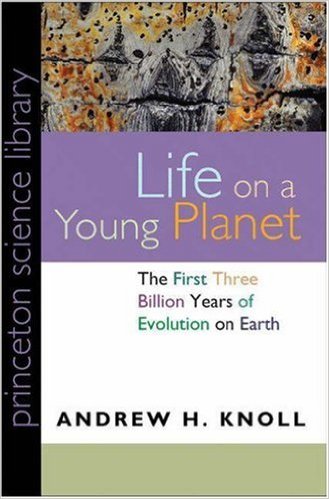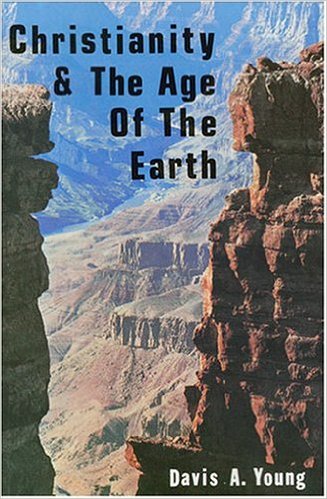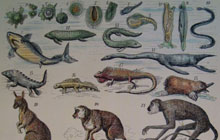After examining the various understandings of the age (and, consequentially, the origin) of the earth, do you believe this discussion is one of importance? Is it fundamental to Christian doctrines, or is it a second or third order issue?
In the following article, The Institute for Creation Research argues that it is indeed essential to a right understanding of the gospel of Jesus Christ (Source).
——-
At our seminars and in our books, we at the Institute for Creation Research take a strong stand on the young earth. We certainly don’t do this to win a popularity contest, for this position is ridiculed by the secularists and many Christians alike. Nevertheless, we teach this without compromise and without apology.
The main reason for believing in the young earth is that the earth is young! The Bible tells us so, and the weight of the scientific evidence points to a young earth. While the Bible may not specify a precise date for creation, it does indicate that the earth is only a few thousand years old. Similarly, while the geologic and physical evidence cannot give a precise age, all the evidence is compatible with the young earth doctrine, with far greater evidence supporting a young earth than an old earth. There is much evidence incompatible with the old earth idea.
Furthermore, many Biblical doctrines are based on the recency of creation and the corollary doctrine, the global flood. One cannot hold the old earth position and believe that the flood was global, for if the flood was global, then the entire earth’s surface was altered. The flood would leave in its wake the rock and fossil record which now is misinterpreted by geologists as evidence for an old earth. All Christians who knowledgeably advocate an old earth believe that the flood was only local. (A few still hold the bizarre notion that the flood was tranquil and did little geologic work. Imagine—a tranquil, world-wide flood!)
The doctrinal absurdities which result from a local flood and old earth are well documented in creationist literature. The most serious fallacy involves the death of the vast majority of earth’s inhabitants before man appeared, and before he sinned and incurred the wages of sin. Astronomer Hugh Ross even proposes human-like animals, who buried their dead, practiced religious ceremonies, painted pictures on cave walls, etc., but did not yet possess an eternal spirit. Death before sin implies that death is natural, not the penalty for sin. But if so, what good did the death of Jesus Christ accomplish? And what was the world like before the fall? Old earth advocates believe it was no different from our world—with death, bloodshed, carnivorous activity, fossils.
Because of ICR’s stand on this all-important issue, some have suggested that ICR teaches that belief in the young earth is necessary for salvation. This is not the case! Salvation does not imply perfect understanding of doctrine, for then no one could be saved. God grants salvation when one repents of his sin and asks for forgiveness based on Christ’s death for his sin. A sinner doesn’t have to know anything about the age of the earth.
Nor does one have to believe in the young earth to be a Christian leader. Many Christian leaders believe and do a lot of things they shouldn’t. But belief in the old earth, with the implied concepts of death before sin, the world before Adam not really “very good,” an inconsequential fall and curse, a local flood, etc., destroys the foundation of the gospel of Jesus Christ. Some Christians do believe in both Christianity and the old earth, but this is inconsistent with their professed belief in the Bible.
——
While ICR and many other young-earth creationists emphasize the importance of a young-earth understanding, other respected Christian leaders are less convinced of its significance in the broader context of Christianity. In the following video, R.C. Sproul explains that because “all truth is God’s truth,” both special revelation (Scripture) and natural revelation (nature) are consistent when rightly interpreted. However, because human interpreters are fallible, both scientists and theologians can be mistaken. Sproul explains that in the history of the church, science has informed the understanding of Scripture. While he believes the Bible hints that it is young, he also clarifies that the Bible does not give a date of creation and allows that science may well have something to bring to the table (Source).
——
As this course’s discussion demonstrates, all who approach this question take much of the same data (whether it be scientific data, grammatical data or other data) and interpret it differently, largely based on previously held assumptions. As scientist and Christian speaker Ken Ham says, “It is not a matter of whether one is biased or not. It is really a question of which bias is the best bias with which to be biased” (Source).
For orthodox Christians, the governing assumption is that the Bible is authoritative, and its message is clear when it comes to the origin of the universe—God created it. While creationists may differ on the timeline (and theistic evolutionists differ to an even greater extent), there are some core doctrines that cannot be compromised. As John Piper explains in the following video (and to which Tim Keller alludes in the earlier excerpt), the historical Adam is widely considered to be the linchpin undergirding the rest of the gospel story: “For as through the one man’s disobedience the many were made sinners, even so through the obedience of the One the many will be made righteous” (Romans 5:19). Watch this short video in which Piper argues that the historical Adam (as a created being formed from the dust of the ground), not the age of the earth, is the foundation upon which the gospel story is built (Source).
——-
After considering the various arguments, where do you land? Are you convinced that the earth is old or young? Is this question worth pursuing? Regardless of your conviction, you will likely have to defend it. Read, think, and discuss with others as you continue to learn and formulate your own position.










